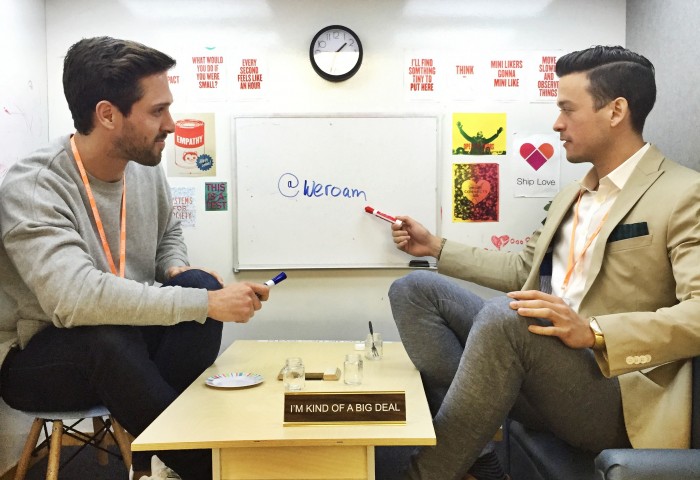How does your garden grow? If you’re an ezhome customer, the company hopes your answer to this question is, “very well indeed.” Founded in 2015, this Palo Alto-based company is taking gardening service to the next level on its way to becoming a leader in the tech-enabled home services industry.
Like many of the companies we’ve spoken to, ezhome believes that supporting remote work gives it a key competitive advantage: the ability to attract the best talent, regardless of where it is. We talked with Liz Peterson about the advantages a distributed team can provide.
Tell us about yourself.
I joined ezhome in March of 2016 to help with a few Palo Alto recruiting projects (working remotely from Barcelona). Within a month, we realized things could go full time, so I’ve been supporting our Palo Alto and remote recruiting efforts full time since April.
How many employees and contractors do you have?
150
Please tell us about the importance of location independence at your company.
One of our co-founders Odysseas Tsatalos previously founded oDesk because of his firm belief that there is great talent all over the world, but that talent doesn’t always have access to the most interesting work challenges given their location.
At ezhome we look to find the best talent wherever it happens to live in the world. We create an environment where our teammates can work on exciting problems with a phenomenal team from wherever happens to be home.
Did you start with the intention of having a distributed or nomadic team? If not, when did you decide to support people working remotely?
Since our founding, we’ve been growing with both a local and remote workforce focusing on finding talent vs. finding location-specific talent.
What are some of the challenges you face as a team without a central location or office?
One challenge to growing with a distributed team is missing out on that “water cooler” chatter. Slack has come to the rescue through the ability to create work and non-work related threads keeping people consistently united. In addition, we have lots of opportunities to meet face-to-face whether through trips to our Palo Alto office, team meet ups, and company hangouts.
What % of your company regularly works remotely?
50%
Any advice or best practices for supporting the work styles of your teammates from a distance?
When you log off for the day, log out of Slack :). Because we’re working round the clock, it’s important for people to “turn-off” when their time zone does so!
What types of places do your teammates choose to work from when remote?
Coffee shops, home offices, co-working spaces, the car, a plane, the beach – you name it, we’ve worked from there.
What qualities do you look for when hiring for a distributed team?
We’re looking for individuals who thrive in an environment of autonomy and ownership. As a team, we trust each other to deliver on our commitments and support each other by enabling each other to do our best work.
Going back to our beginnings (and even before), we’re founded on the idea that the smartest and most hardworking individuals should get to work for great companies on interesting work. We know that this will be the future of the workforce and we’re glad to be building our team ahead of the curve.
What are your thoughts on Workfrom’s role in the way work is getting done—now and in the future?
Workfrom’s role is to connect individuals with each other and also with great environments for them. Each of us has our own best working spot – quiet, loud, crowded, colorful, bright, etc. and the people who congregate there already have a common ground. As the world moves to allowing individuals to work in the best way for themselves, Workfrom will continue to grow into a foundational tool for these “digital nomads.”



Responses